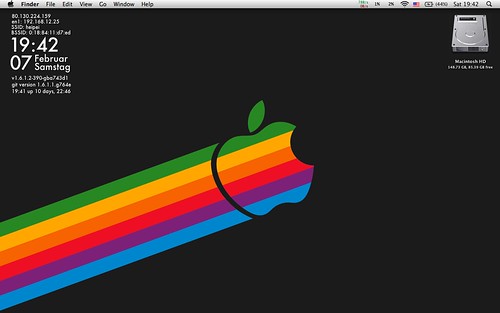heipei.net – Oh my god, that’s the funky shit!
Yeah, you read correctly. As of right now, this website can be reached via heipei.net again.
For those of you who haven’t been reading this weblog 2 years ago: The domain heipei.net was snatched from me in September ’06. This of course happened to same part due to sloppiness when trying to move the domain (I can’t even recall the details). I have been monitoring the domain since then, and had discovered that the domain started expiring at the end of last year. After a 75-day redemption-period it was finally deleted, and I was able to register it (with no backorder or extra-charge).
Although most people know my weblog by now, I suspect a fair share of them has problems memorizing hackvalue.de/heipei/. And I think I’ll still be getting mail addressed to heipei(ät)heipei.net (at least spam :P). So, starting today, you can also reach me via

Please update any links on your websites/weblogs. The whole site can still be reached using the hackvalue.de/heipei/-prefix, but I’d prefer it if you referred to this domain directly.
 Debugging programs for yourself (or from bug-reports from other people) requires knowing which version caused the bug. Of course most people think in terms of major releases, but a developer needs to know the exact revision, as this might make the crucial difference. UNIX command-line programs usually offer a –version switch, which returns detailed version and build-option information.
Debugging programs for yourself (or from bug-reports from other people) requires knowing which version caused the bug. Of course most people think in terms of major releases, but a developer needs to know the exact revision, as this might make the crucial difference. UNIX command-line programs usually offer a –version switch, which returns detailed version and build-option information.
